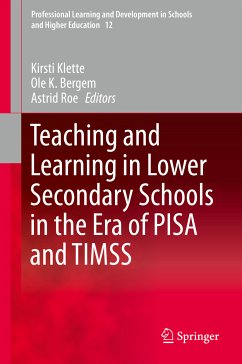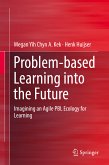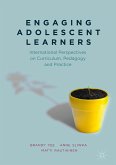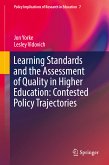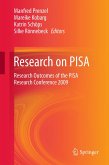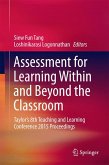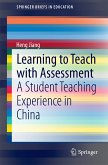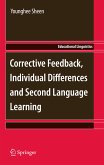Based on extensive video documentation from science, math and reading classrooms in Norwegian secondary schooling, this book explores teaching and learning in lower secondary classrooms in the three PISA domains science, mathematics and reading. It analyzes how offered and experienced teaching and learning opportunities in these three subject areas support students' learning. The in-depth investigations of video documentation are combined with analysis of data from PISA and TIMSS in order to understand how teaching and learning in science, mathematics and reading can be improved. Recent reviews indicate that instructional practice does make a difference to students learning - and is more important than other factors including students' socioeconomic background, class size, classroom climate, and teachers' experience and formal training. This book opens the discussion on a European basis about contemporary challenges in teaching and learning in secondary schooling. Norway as a test bed is particularly interesting due to its long tradition with national curricula, and its unitary and non- streamed structure. Furthermore, ideas of educational progressivism and students' active ways of working (such as individualized teaching, adapted teaching, inquiry based teaching etc.) have for a long time been actively promoted within Norwegian educational policies. The book draws on analyses that combine expertise in psychometrics and video-based micro genetic classroom studies with expertise in domain-specific instruction (math, science and reading). It feeds the conversation how issues of communication patterns are dealt with and made productive within different instructional formats, and presents possibilities to compare and analyze instructional formats and discursive practices for students' learning.
Dieser Download kann aus rechtlichen Gründen nur mit Rechnungsadresse in A, B, BG, CY, CZ, D, DK, EW, E, FIN, F, GR, HR, H, IRL, I, LT, L, LR, M, NL, PL, P, R, S, SLO, SK ausgeliefert werden.

